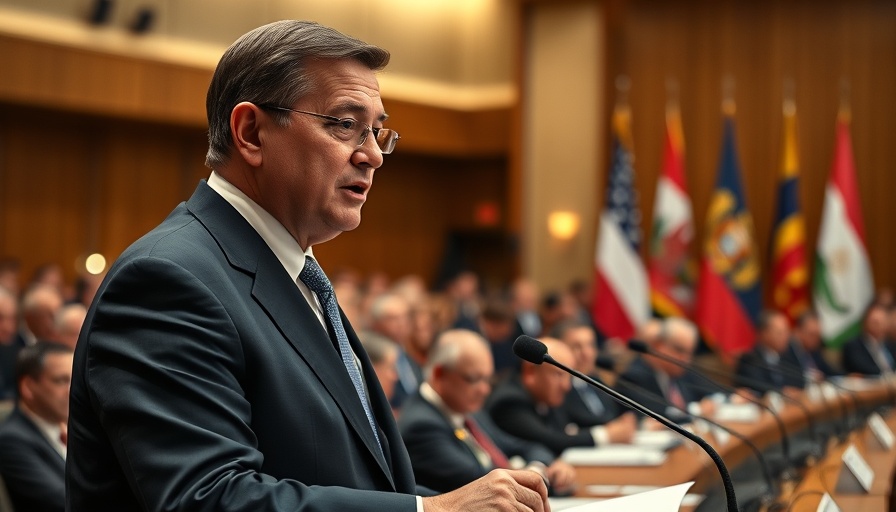
Peace, Security, and Development: An Unbreakable Bond
At a recent debate in the United Nations Security Council, Guyana's Foreign Minister Hugh Todd emphasized a crucial yet often overlooked connection: the inseparability of peace, security, and sustainable development. As global leaders convened to discuss 'Poverty, Underdevelopment and Conflict,' Todd's insights resonated deeply amid the complex challenges facing many nations.
He stated, “Peace and security cannot be divorced from development,” highlighting that without a stable environment, any efforts towards growth in developing countries are futile. This relationship is especially vital in contexts marked by poverty and socio-economic challenges. Todd’s assertion reflects a growing consensus that economic and social stability are foundational for long-term peace
Why Solely Political Solutions Fall Short
Minister Todd noted that merely relying on political solutions to resolve conflicts will not lead to lasting peace. He argues for a broad-based approach that addresses the root causes of inequality, including lack of economic opportunities and educational access. “We must therefore address inter alia, lack of economic opportunities, lack of access to education, unemployment, and exclusion,” he stressed, succinctly summarizing the broader socio-economic issues at play.
This perspective aligns with various scholarly opinions, suggesting that addressing educational disparities and unemployment can significantly ease social tensions. By focusing on upliftment and inclusion, countries can create an environment where peace becomes more attainable.
The Financial Architecture Must Adapt
In his address, Todd also raised an important point regarding the accessibility of financial resources for developing nations. He criticized the prevailing international financial architecture, underscoring that “being poor is expensive.” For many developing countries, high costs tied to obtaining funding only worsen existing economic challenges.
According to many experts in global finance, these systemic inefficiencies must be rectified if we are to tackle global poverty effectively. Hence, a suggested restructuring could include making financing more accessible and tailored to the unique circumstances of nations transitioning out of conflict. Such an overhaul could empower countries to tackle not just poverty, but also the cycles of violence and instability that often accompany it.
Investing in the Future: Youth and Women
Another crucial element of Todd’s message was the importance of investing in vulnerable demographics, particularly youth and women. By calling for increased support for these groups, he highlighted a strategy that acknowledges their potential as drivers of change within society. With proper investment and opportunities, these segments can contribute significantly to economic growth and social stability.
Guyana's Role in Global Conversations
Guyana’s recent presidency of the UN Security Council is an opportunity for the country to shine a light on these issues. As Todd prepares for the upcoming Children and Armed Conflict Open Debate, there is an expectation that Guyana will continue emphasizing the need for a multifaceted approach to address the intertwined issues of peace, security, and development.
The upcoming discussions serve as a reminder that while the challenges of poverty and conflict may appear overwhelming, concerted efforts focusing on economic, educational, and social dimensions can pave the way for a more peaceful future.
 Add Row
Add Row  Add
Add 




Write A Comment